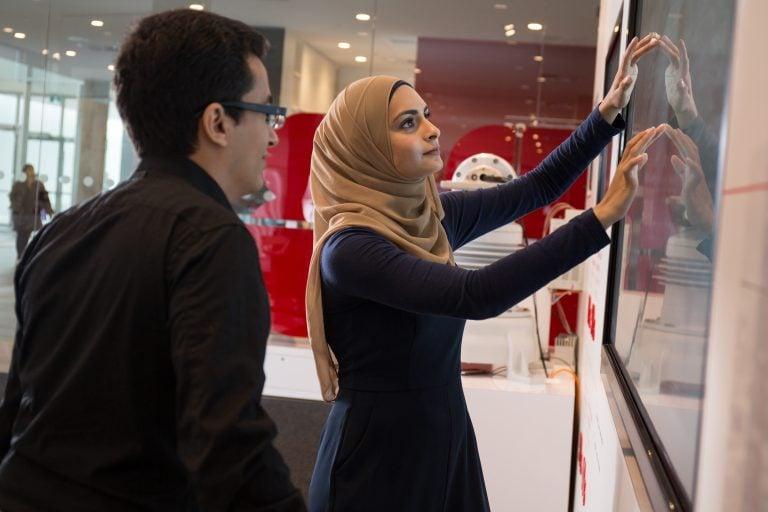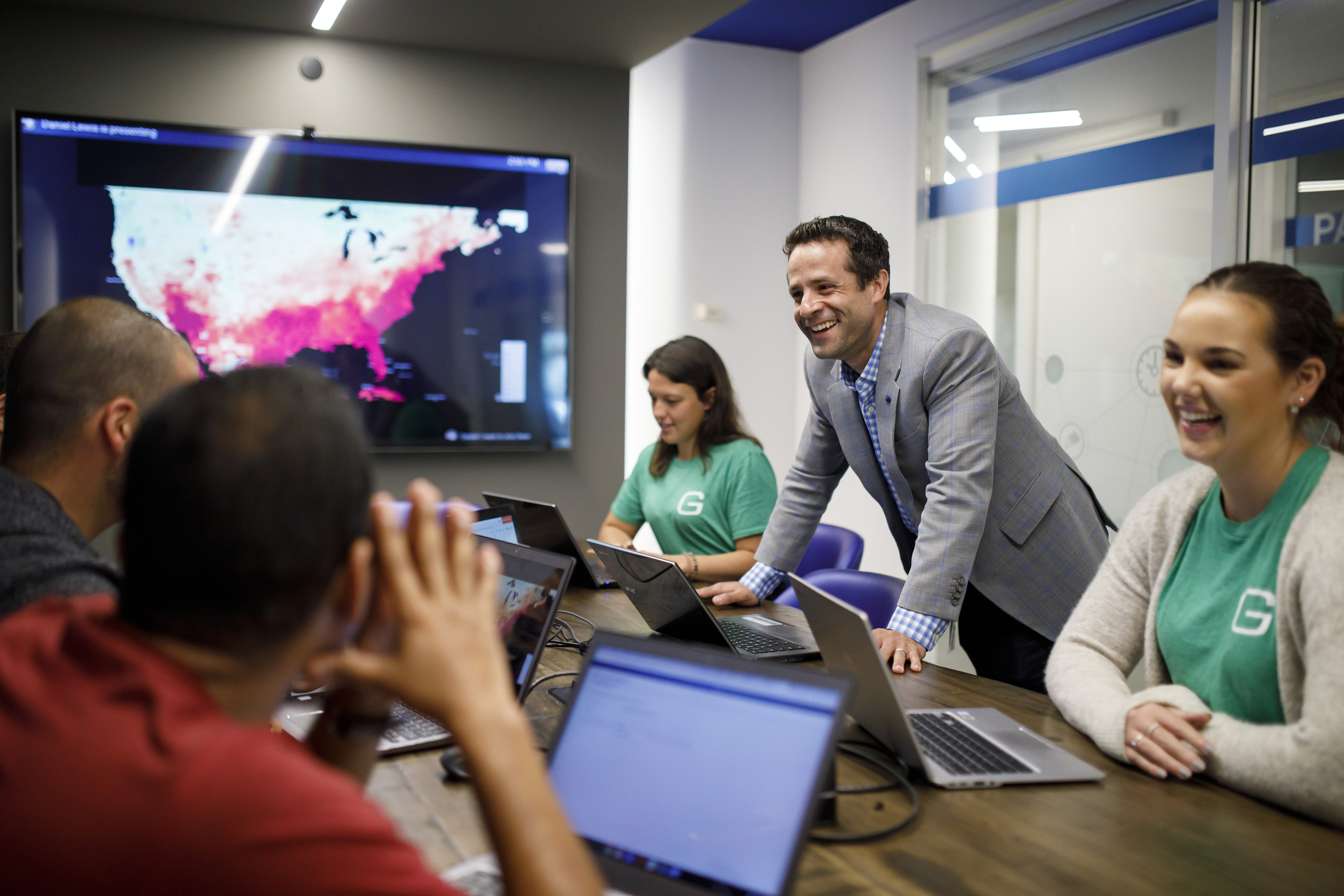Specialty programs becoming a popular alternative to an MBA
Specialized graduate programs that don’t require job experience can help students be ready for business, sooner

Rida Mehdi, attended McGill’s master of analytics management program (Photograph by Nasuna Stuart-Ulin)
Share
Degrees in finance, big data and entrepreneurship are some of the new kids on the block in graduate business education.
These and other specialty masters burst on the scene a decade ago, becoming a go-to credential for students without the work experience usually needed to qualify for the traditional master of business administration.
The new programs respond to changing employer demands and also dip into a different pool of candidates, which often includes more women than traditional MBA enrolment. Still proliferating—business ethics is a hot new subject, according to a global student survey this year by London-based Carrington Crisp consultants—specialty degrees are transforming the landscape for business education worldwide.
“We are seeing many more options available for students and strong global growth in specialty master programs,” says Michael Wiemer, senior vice-president and chief officer of the Americas for AACSB International, an accrediting body for graduate business education. “Business schools are being much more agile in adjusting to the market.” According to an AACSB member survey, between 2013–14 and 2017–18, global enrolment in specialty masters jumped 18.9 per cent to 165,281 students, while enrolment in general business master degrees grew only 4.7 per cent.
Typical of the trend is a master of management in analytics (MMA), introduced last year by McGill University’s Desautels Faculty of Management. Now in its second year, the program recorded more than a threefold increase in demand: 547 applications for a class of 55 students this fall, compared to 154 applications last year.
RELATED: How to ace your MBA admissions
The surge plays off employer hunger for professionals who can translate the meaning of big data to top management. “Business is realizing that data is becoming the new oil,” says Mehmet Gumus, director of the MMA program. Recent undergraduates with little job experience look to programs like these for industry-ready credentials and a ticket to a first job.
Last year, Rida Mehdi graduated from the University of Windsor with degrees in biochemistry and computer science, eager to apply her technical skills, possibly in health care. She lacked the requisite job experience for an MBA, but enrolled in Desautels’ 12-month MMA, which she chose for its academic training, real-life exposure to industry clients and location in Montreal, a hub for artificial intelligence.
During the program, she took part in a year-long experiential learning course using data supplied by companies that worked with students and professors. “Real data are always very different from school data,” she says. “They are messier, and you get to deal with real-world problems.”
Mehdi also thought the 50-50 gender balance of the program was “really, really, really cool.”
While at Desautels, Mehdi landed a three-month internship in Montreal with ABB, a Swiss technology company that develops digital products and services for major industries and utilities.
Her interest in applied technology has not changed, though she now imagines potential careers beyond health care. Her master’s program, she says, “opened my eyes to other opportunities.”

Though most specialized business programs target students who are starting out, a few cater to mid-career professionals who want to study while they work.
Mike Branch graduated in computer engineering in 2003, founded his own software company and sold it in 2016 to Geotab Inc., an Oakville, Ont., company that specializes in global positioning systems to track fleet vehicles. Now vice-president of data and analytics at Geotab, he wanted to deepen his ability to manage people and data in a disruptive world of artificial intelligence.
For him, a full-time MBA held no appeal, given his years of business experience and his preference to continue working full-time. Last year, he enrolled in a new Master of Management in Artificial Intelligence at the Smith School of Business at Queen’s University, taking classes at its Toronto campus on evenings and weekends.
“[The program] elevated my competency in being able to work with data scientists and also in discussions [with customers],” says Branch. The content, he adds, addressed the daily challenges he faces at work, such as ethical sourcing of data. “These are both technical and management decisions,” he says.
RELATED: Why Canada’s MBA programs are beating American competition
One nagging question about specialized masters is their potential to erode the traditional MBA market. For now, business school officials say they see little evidence that topic-specific degrees are undercutting MBA programs.
“The classic MBA is teaching you to be a manager and equipping you with a broad set of skills,” says Susan Christoffersen, vice-dean of undergraduate and specialized programs at the University of Toronto’s Rotman School of Management. Alongside its popular full-time MBA, the school now offers specialized masters in financial, managerial analytics and financial risk management. “The specialty programs are much more about a deeper dive,” she says.
Still, London-based business school consultant Andrew Crisp sees some signs of erosion.
“People in the last three or four years have been choosing to do a business [specialty] masters within a year or two of graduating rather than waiting five years to do an MBA,” he says.
But at Smith, one of the earliest providers of specialty masters in Canada, associate dean of MBA and masters programs, Elspeth Murray, sees no evidence of cannibalization. “We are serving an entirely different market,” she says. “We have tapped into a gold vein of people who are hungry for a more specialized master-level education, but don’t want to quit their day jobs.”